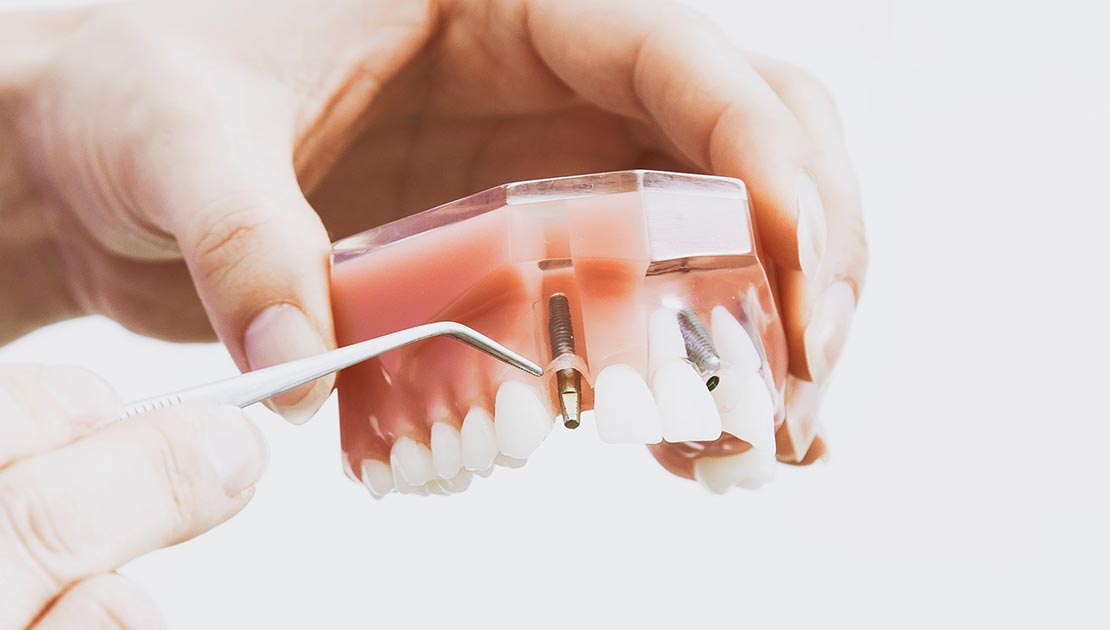Dental implants have revolutionized the way we approach missing teeth, offering a durable and aesthetically pleasing solution. If you’ve recently had a dental implant procedure or are considering implants as a treatment option, understanding how to care for and maintain your new smile is crucial. Proper care not only ensures the longevity of your implants but also helps maintain overall oral health. Here’s what you need to know about dental implant care and maintenance.
Understanding Dental Implants
Before diving into care and maintenance, it’s essential to understand what dental implants are and how they work. Dental implants are composed of a titanium post that fuses with your jawbone, a process known as osseointegration, acting as a sturdy anchor for the replacement tooth, crown, or bridge that sits atop it.
The Role of Your Implant Dentist
Your implant dentist plays a crucial role in your journey towards a restored smile. From the initial consultation at a clinic like Brentwood Dental Care to the final placement of the crown at Harmony Dental Care, your dentist ensures that the implant integrates well with your jawbone and that the prosthetic tooth fits perfectly, both functionally and aesthetically.

Daily Dental Implant Care
Much like natural teeth, dental implants require daily care to prevent issues such as gum disease or implant failure. Here’s how to keep your dental implants in top shape:
Brushing and Flossing
Brushing twice a day with a soft-bristled toothbrush and fluoride toothpaste is essential. Pay special attention to the gum line around the implant. Flossing once a day is also crucial; use unwaxed tape or implant-specific floss to avoid damaging the tissue around the implant.
Using an Interdental Brush
For those hard-to-reach areas around implants, bridges, and abutments, an interdental brush can be a game-changer. It helps remove plaque and food particles that regular brushing might miss.
Avoiding Harmful Habits
Steer clear of habits that can damage your implants, such as chewing on hard items (ice, pens, or hard candy) and using your teeth as tools. If you grind your teeth at night, discuss getting a mouthguard with your dentist to protect your implants.
Regular Dental Check-Ups Regarding Dental Implant Care
Routine dental visits are vital for maintaining implant health. Your dentist will check for proper implant integration, signs of infection, and the condition of your prosthetic teeth. Regular professional cleanings help remove plaque and tartar that at-home care can’t tackle, ensuring your implants and natural teeth stay healthy.
Professional Cleaning Tools
During your visit, your dental professional might use specialized tools designed for cleaning around implants without scratching their surface. These tools are often made of materials softer than titanium, like plastic or resin, to prevent damage.
Addressing Dental Implant Care Problems Early
If you notice any signs of trouble, such as pain, swelling, or movement of the implant, contact your dentist immediately. Early detection and intervention can prevent more severe issues and potential implant failure.
The Importance of Immediate Care
Prompt attention to problems not only saves your implant but also protects your oral health. Infections around implants can lead to bone loss and impact adjacent teeth if left untreated.

Lifestyle and Diet Considerations for Dental Implant Care
What you eat and your lifestyle choices can affect the longevity of your dental implants. Here are some tips to keep in mind:
Eating a Balanced Diet
A diet rich in vitamins and minerals supports oral health and aids the healing process after implant surgery. Foods high in calcium and vitamin D are particularly beneficial for maintaining strong bones and supporting osseointegration.
Quitting Smoking
Smoking can impede healing and increase the risk of implant failure. If you smoke, consider seeking help to quit for the sake of your implants and overall health.
Managing Chronic Conditions
Conditions like diabetes can affect your body’s ability to heal and fight infections. If you have a chronic illness, work with your healthcare provider to manage it effectively and discuss any implications for your dental implants.
Long-Term Dental Implant Care
Dental implants can last a lifetime with proper care. Here are long-term strategies to ensure the durability of your implants:
Monitoring Wear and Tear
Over time, the prosthetic teeth mounted on your implants can wear down. Regular dental check-ups allow your dentist to monitor and address any wear before it becomes a problem.
Replacing Prosthetic Components
While the titanium post of your implant can last a lifetime, the crown or bridge may need replacement after 10-15 years, depending on wear and care.
Staying Informed
Stay up-to-date with the latest in dental implant care and consult your dentist if you have any concerns or questions about the best practices for maintaining your implants.
Conclusion
Dental implants are a significant investment in your smile and overall well-being. By following these essential care and maintenance tips, you can enjoy your new teeth for years to come. Remember, a combination of diligent at-home care, regular dental check-ups, and healthy lifestyle choices is key to the success and longevity of your dental implants.
Keep your smile bright and your implants secure by partnering with your dental care team and committing to a thorough oral hygiene routine. Your implant dentist in Brentwood Dental Care or Harmony Dental Care is your ally in this journey, ensuring that your dental health remains in harmony with your aspirations for a confident, beautiful smile.
Embrace these tips and enjoy the full benefits of your dental implants, knowing that you’re taking the right steps to maintain your oral health and the brilliance of your restored smile.



